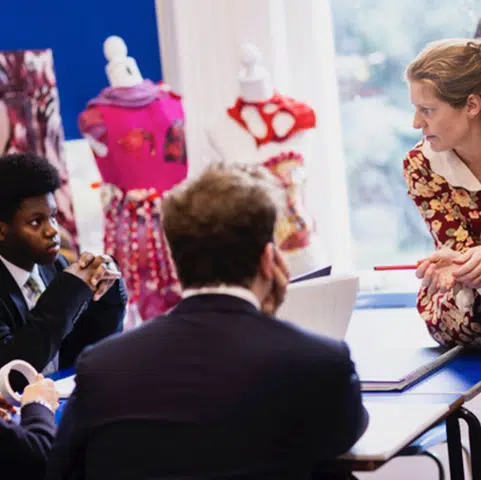Occasionally, a student needs to start the A-level programme in January, rather than the previous September.
This may be because:
- The academic year in their home country differs from the UK
- They have decided that the course they started in September is not the correct choice for them
Therefore, Earlscliffe offers students a 5-term A-level option.
Thanks to our small class sizes and personalised teaching approach, students are able to manage the A-level workload in a shorter space of time. However, admissions are subject to an academic and pastoral review, as this is an especially challenging academic programme.
During the first two terms, students benefit from an intensive teaching approach designed to guide them through the condensed curriculum. In September of the following academic year, they integrate into the main Year 12 A-level cohort and continue their studies at the standard pace.
Available subject combinations for the 5-term A-level are as follows:
| Combination 1 | Mathematics | Economics | Business |
| Combination 2 | Politics | Economics | Business |
| Combination 3 | Biology | Chemistry | Mathematics |
| Combination 4 | Mathematics | Physics | Chemistry |
Most international students will also study English for Academic Purposes.
Students with lower level English proficiency are recommended to first join the Pre A-level classes for one or two terms, before starting A-levels at the natural entry point of September.
If a student is considering GCSE or A-level studies at Earlscliffe but would like to experience our environment first, we offer flexible short-term Study Abroad programmes. These courses provide an excellent introduction to life at Earlscliffe, with the option to progress seamlessly into full GCSE or A-level studies upon completion.






